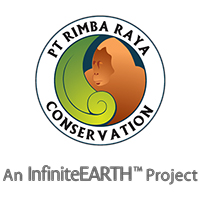Orangutan Foundation International (OFI) is proud to officially announce its partnership with The Rimba Raya Biodiversity Reserve, an InfiniteEARTH project. The Rimba Raya Biodiversity Reserve aims to reduce Indonesia’s… Continue reading Announcing Field Partnership between OFI & Rimba Raya, an InfiniteEARTH Project
Announcing Field Partnership between OFI & Rimba Raya, an InfiniteEARTH Project




